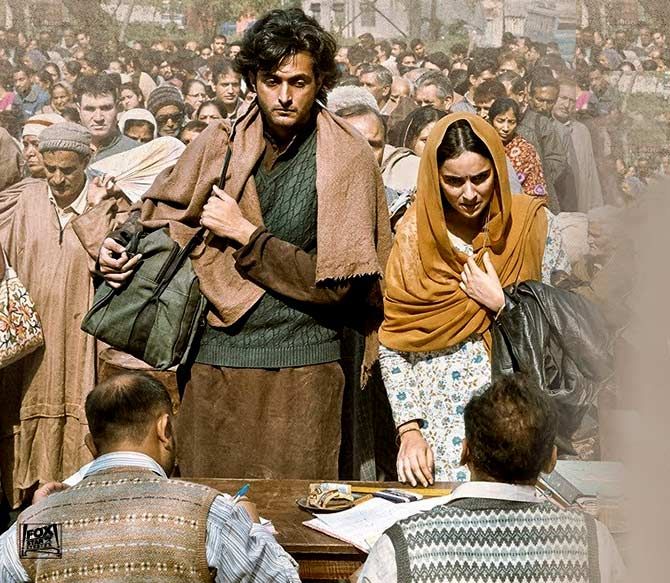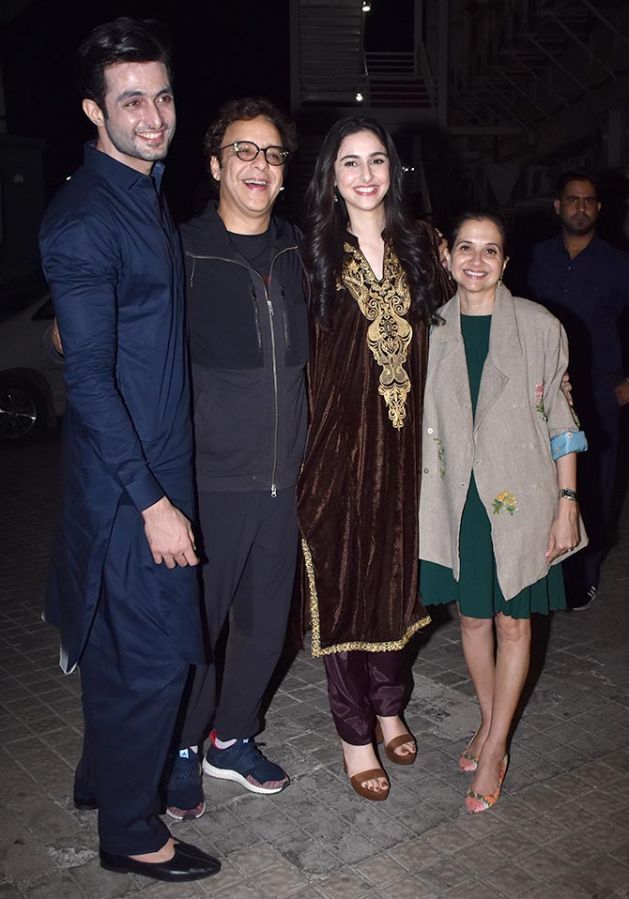'In every film, I have a message and in Shikara, it is, 'Todo nahin, jodo (Unite, don't divide)'.'

Vidhu Vinod Chopra's Shikara recounts the horrific period when Kashmir Pandits had to flee the Kashmir valley in 1989-1990.
January 19, 1990, was the day the final exodus happened and it left many scarred.
The director tells the tale of those who were forced to leave their homes to save their lives and what happened to them after that.
It's a chapter that is an important part of Indian history, but as Vidhu tells Rediff.com Contributor Moumita Bhattacharjee, "I can't believe that respective governments, the people of India, the media and the film-makers of India did nothing about it."
You have dedicated Shikara to your mother. Why is that?
When my mother came here, she said we would return in a week.
That turned into months, then years... Slowly, that smile vanished.
My brother was attacked, he had to run away overnight.
She died in 2007 and I started working on it in 2008.
The first draft was called Pacchaswi Saalgirah (50th anniversary).
My main character in the film keeps saying, 'Ho sake to mujhe le jaana (If possible, take me back).'
My mother had said, 'Ho sake to ek din film banana. (If possible, make a film).'
It took 30 years for the tragedy to come to Hindi cinema.
That's really sad.
It took me 11 years; I never thought it would last that long.
You feel, one day, everything will get better.
I can't believe that respective governments, the people of India, the media and the film-makers of India (pointing at himself) did nothing about it.

How did you find Aadil Khan and Sadia?
I spent two years finding them and two years training them.
With every day, they became better and better.
I have introduced a lot of talents -- from Sanjay Leela Bhansali to Rajkumar Hirani to Vidya Balan. This is the best talent I spotted.
I wanted someone with a voice like Amitabh Bachchan's because the character is a poet.
Aadil's voice is great and it started from there.
For the female lead, I was looking for someone like Nargis or Nutan. I needed a certain purity.
What has happened now is that people who aspire to join films, the purity of their faces have reduced.
That's because our cinema has become like that.
The innocence is gone!
Now they do all kinds of things to their faces... it's all fake.

You mentioned in an interview that the local Muslim population was part of your crew. Even the leads of the film are Muslim. Was that a conscious decision?
When I was writing the film, I was hoping it would happen that way.
I believe that is a very strong message going out in a country that is increasingly getting divided.
We are one family.
What are your expectations from Shikara?
I have no expectations.
I don't even bother about how much the opening will make.
I just want to do my job perfectly.
The only expectation one should have is from your own self.
In every film, I have a message and in Shikara, it is, 'Todo nahin, jodo (Unite, don't divide).'
What are you working on next?
Shikara was very close to my heart and very tiring.
I have been wanting to make Munnabhai for a long time.
Moumita Bhattacharjee believes that writing on movies is pure fate. She can be contacted at movies@rediff-inc.com











 © 2025
© 2025